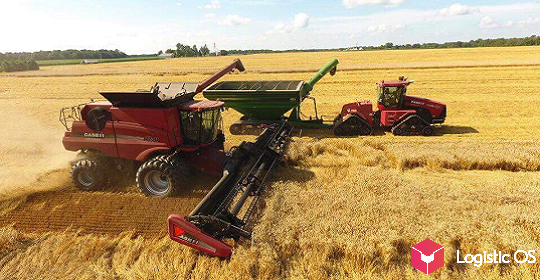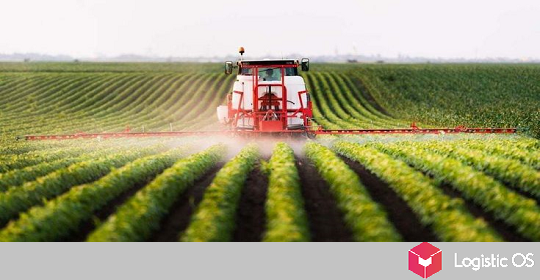Record grain harvest and low export rates do not contribute to the growth of value.
Producers of feed grain in the Russian Federation have cause for concern this autumn: its average price within the country has fallen significantly, which threatens with a significant reduction in revenue.
Why did this happen?
There are two main reasons:
Record harvest in Russia.
This season, 105 million tons of grain were harvested instead of 86 million a year earlier, of which 79 million tons of wheat were harvested instead of 63 million a year earlier. This creates an oversupply that puts pressure on the price.
More importantly, due to sanctions, low export rates and disrupted supply chains, farmers have had difficulty exporting their product.
In the absence of this factor, problems in order to realize even such a large harvest, most likely, would not have arisen.
How much does feed wheat cost in Russia?
Its price varies greatly from region to region.
For example, in the Volga region, where there are relatively few livestock breeders — the main consumers of fodder — prices are very low: about 6,000 rubles per ton.
In the central part, where the livestock business is quite developed, the prices are about 11-12 thousand rubles per ton.
At the same time, in general, feed wheat prices are now at their lowest levels since 2018, Sovecon notes.
The difference in the price of fodder and high-quality wheat also attracts attention: it reaches 6 thousand rubles per ton.
Will farmers sell their crops cheaply?
On the one hand, if they took such a step, it would allow livestock breeders to reduce their costs — which means that sausage prices in stores might not increase for some time.
On the other hand, the cost of wheat production is growing, including due to higher logistics costs.
With high costs and minimal revenue, grain producers themselves are at great risk of not making ends meet, and this is fraught with problems in the next season: if the harvest is noticeably less than the current one, there will be no escape from the increase in prices for meat products.
At the moment, although there is an oversupply on the market, farmers are in no hurry to empty their storages and sell grain cheaply, says Andrei Sizov, director of Sovecon.
Although they are «pressed» by a large harvest, but its harvest is gradually being completed, so that prices can stabilize. In addition, if exports can be accelerated, this will also increase the price.
When it comes to sales, they usually happen in two cases: when grain producers need money and when they need to empty their warehouses urgently, for example, before a new harvest.
So far, this is far from it, and therefore it is likely that farmers will wait to bring all their stocks to the market, counting on price increases in the near future.

